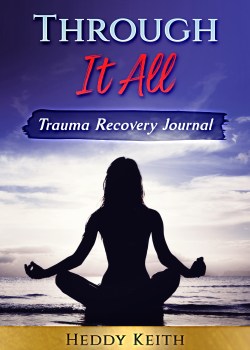Heddy Keith M.Ed., CI
“Nothing Ever Goes Away Until It Teaches Us What We Need To Know” Pema Chodron
We can’t deny trauma, we can’t hide from it, we can’t refuse to face it. It’s always there underneath the surface stored in our subconscious minds. Like weeds, we must pull them up from the root.
Some people won’t look at their problem; instead, they sweep it under the rug where it festers and becomes a lump that trips them. Because we don’t see it doesn’t mean that it’s not there. That experience makes automatic decisions based on past experiences. Unless we commit to take some action our issue will keep turning up, oftentimes more serious and difficult until we address it. We’ll have the same challenges until action is taken.
You can start by:
- Meditating for 20 minutes helps to relax and calm your mind and body.
- Writing for 20 minutes releases the emotional pain and increases the immune system.
- Call a trusted professional to discuss where you can begin your healing journey.
- Take a walk for 20-30 minutes.
- Seek the right help. Read a self-help book. Take a long bath.
Begin the healing process. You’ll feel great. Every fiber of your being will shift, and your life will change.
Writing one’s feelings gradually eases emotional trauma. Writing therapeutically can take place individually or in a group and can be administered in person. Expressive writing has the potential to provide a ‘boost’ to the immune system, perhaps explaining the reduction in physician visits. One could argue that talk and writing differ in relative cerebral dominance. If language is more related to the right hemisphere, then writing may be more related to the left hemisphere. If this is the case, then writing might stimulate parts of the brain that are not stimulated by talking.
Julie Gray, founder of Stories Without Borders notes that “People who have experienced trauma in their lives, whether or not they consider themselves writers, can benefit from creating narratives out of their stories. It is helpful to write it down, in other words, in safety, and in non-judgment. Trauma can be isolating and those who have suffered need to understand how they feel and try to communicate that to others.”
In Through it All: Trauma Recovery Journal, I share quotes and writing prompts to help get you started.
“The effects of unresolved trauma can be devastating. It can affect our habits and outlook on life, leading to addictions and poor decision-making. It can take a toll on our family life and interpersonal relationships. It can trigger real physical pain, symptoms, and disease. It can lead to a range of self-destructive behaviors.”
Peter A. Levine

